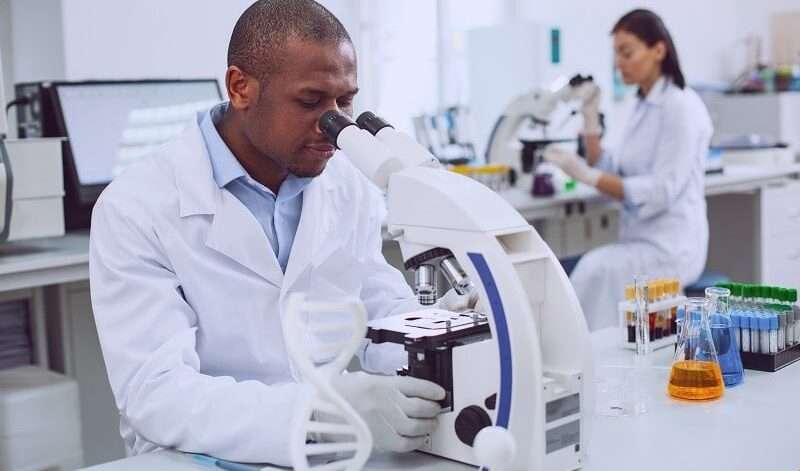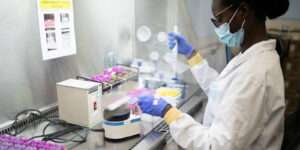The Job Description of a Clinical Cytogeneticist
In addition to technical skills, a clinical cytogeneticist must have strong communication skills. They may need to work with laboratory equipment and computer programs, as well as interact with doctors, nurses, and other medical personnel. They must be able to explain test results to patients and discuss possible treatment options.
Also Read – Biomedical Scientist Job Description
Technical skills
Technical skills are an important part of the job description of a clinical cytogeneticist. These skills enable you to analyze data and come up with the best treatment options for patients. In addition to analytical skills, cytogeneticists must be capable of critical thinking. They need to know how to evaluate alternatives and weigh relative costs.
Clinical cytogeneticists count and identify chromosomes, attach them to karyotype charts, and interpret the results. They can also identify structural abnormalities. These results are used to diagnose and treat genetic diseases. A clinical cytogeneticist has to be well-versed with the latest technologies in order to provide the best care to patients.
A cytogeneticist does not work directly with patients, but helps doctors and other health care professionals analyze samples from patients. They also work with other medical professionals, including geneticists and pathologists, to create new treatment options for patients. They are involved in the development of new treatment methods, including autoimmune and allergy treatments. Clinical cytogeneticists can also work as part of a team to conduct community-based research.
A clinical cytogeneticist’s job description entails using cytogenetic technology and chromatography to create DNA samples. Cytogenetic technology and chromosome analysis are used to determine the causes of genetic diseases and other rare conditions. In addition to detecting genetic abnormalities, clinical cytogenetics can also be used to make diagnoses for congenital abnormalities and other diseases. For example, in the field of prenatal diagnosis, it is possible to analyze human chromosomes using samples of amniotic fluid or chorionic villus.
The field is growing rapidly and can provide high wages. Cytogenetic technologists can earn up to $154,906 per year. Entry-level salaries are around $65,865 per year. However, salary levels can vary widely depending on your experience and credentials.
To become a clinical cytogeneticist, you should complete a certification program. These programs typically last for two years. You can also pursue a master’s degree in cytogenetic technology. Obtaining a master’s degree can also lead to other positions like genetic counselor or research associate. The curriculums in master’s programs also include training in management and supervision.
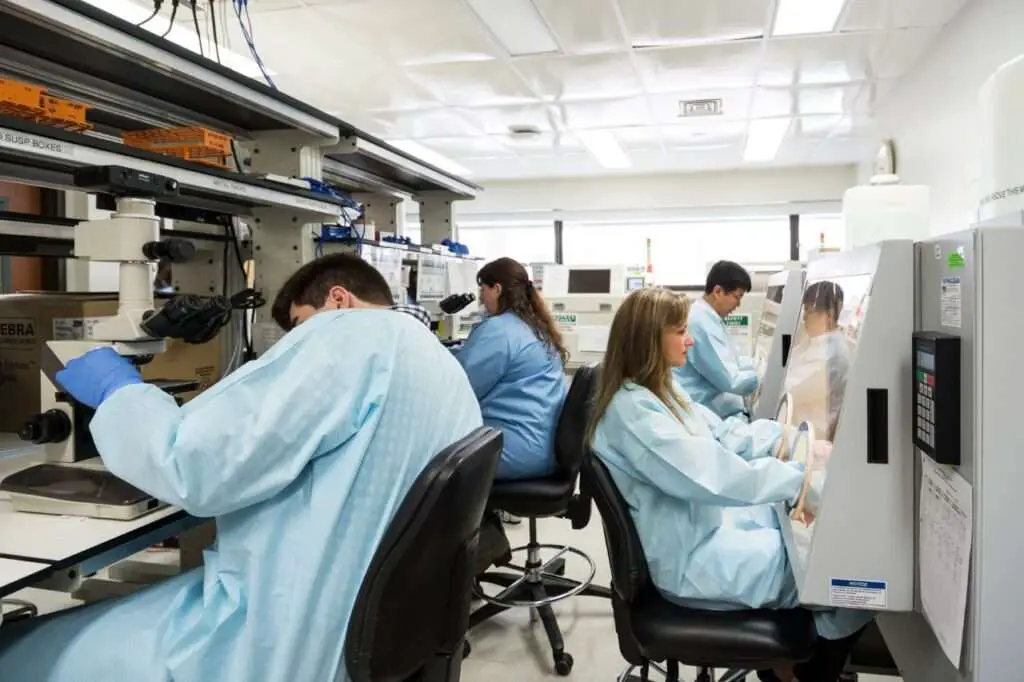
Also Read – Immunologist Job Description
Communication skills
Clinical cytogeneticists perform a variety of tests and analyze cell samples. They also collaborate with other medical professionals to diagnose diseases and develop treatment plans for patients. Throughout their career, they must constantly learn and improve their skills and knowledge of the field. They must also have excellent communication skills, as they work with a variety of people.
Clinical cytogeneticists work in laboratories attached to hospitals. Some of these facilities are affiliated with teaching hospitals, like the National Centre for Medical Genetics at Our Lady’s Children’s Hospital in Dublin. Entry to this field is generally without a postgraduate qualification, although being registered with the Health Professions Council is recommended. Most laboratories employ a competency-based training system. In addition, cytogeneticists must undergo continuing on-the-job training to stay up-to-date with new laboratory techniques and IT developments.
Career advancement for cytogeneticists is possible by taking on more responsibility in the lab. They may manage other technicians and trainees. They may even be able to establish their own lab. In addition, many cytogeneticists also pursue research positions.
Candidates must possess the technical skills to perform assays and report findings to pathologists. They must also be skilled in performing routine laboratory maintenance and performing preventive measures to ensure quality. Lastly, the clinical cytogeneticist must possess excellent interpersonal and communication skills in order to meet the demands of patients and work with others.
Clinical cytogenetic technologists count and identify chromosomes and karyotype charts. These results aid in diagnosis of genetic diseases. In some cases, these results can lead to treatment. If necessary, the cytogeneticist can provide assistance to patients with their medical conditions.
Clinical cytogeneticists should have an advanced degree or other related field. They must also possess a current California state Cytogenetics CLS license. In addition, the role requires them to organize their laboratory’s daily operations. They must also be able to work independently and as part of a team.
As a part of the clinical cytogeneticist job description, they must be skilled in writing and speaking in English. They must also possess a Ph.D. degree and be certified by the American Board of Medical Genetics. The salary they earn will be commensurate with their experience. The University provides benefits and health care coverage.
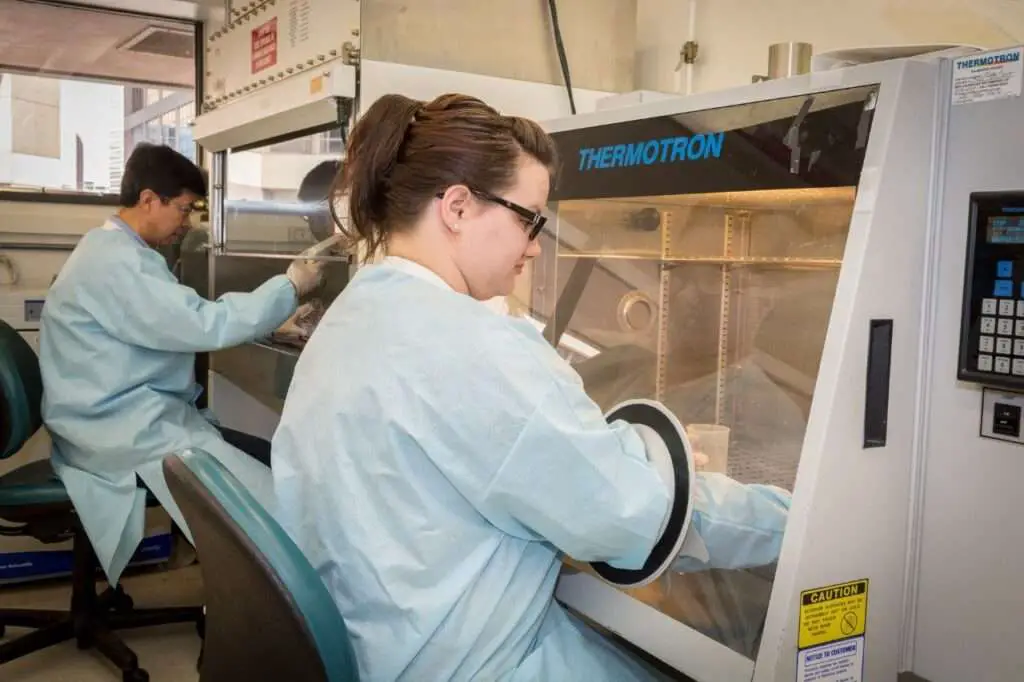
Also Read – Biotechnologist Job Description
Education
In order to be a cytogenetics technician, you should have a degree in a biomedical or genetics related field. Many employers also look for postgraduate or PhD qualifications. Those with first degrees who have had laboratory experience or have completed a project are also desirable. There are several entry routes to this career, including a national training programme, NHS Scientist Training Programme, and other similar paths. However, progressing through the qualification requirements can take several years. In addition, you should keep in mind that your promotion will depend on your performance.
While a cytogeneticist does not work directly with patients, he or she must be skilled in using laboratory equipment and computer programs. They must also be able to communicate effectively with other health care professionals and explain the results of laboratory tests to patients. As a health care professional, a cytogeneticist can make a valuable contribution to the development of new treatments and the study of disease.
Clinical cytogeneticists work in laboratories within healthcare facilities. They often work alongside other medical specialists. The job description for cytogeneticists can be varied, and many different aspects must be considered before choosing the right career path. For example, whether you’d like to work in a laboratory or in a hospital, you should consider the location and the type of work you want to do. The role is rewarding and gratifying, but it can also be demanding.
Before beginning your career as a cytogeneticist, you should complete a structured training programme. The National Training Programme for Clinical Scientists in Cytogenetics (NTPCSC) is usually two to three years long, and involves a mix of formal learning and clinical rotations in general hospitals in the base district. Your training should include cytogenetics, prenatal amniotic fluid testing, and blood sample cytogenetics. The training should culminate in a postgraduate certificate in clinical cytogenetics.
The education required for this job is based on the position’s needs. A clinical cytogeneticist’s job description will contain information regarding their education, training, and certification. Generally, a clinical cytogeneticist must hold a doctorate degree in genetics and be licensed to practice in their state. There is an additional requirement for licensure based on the state in which you live.
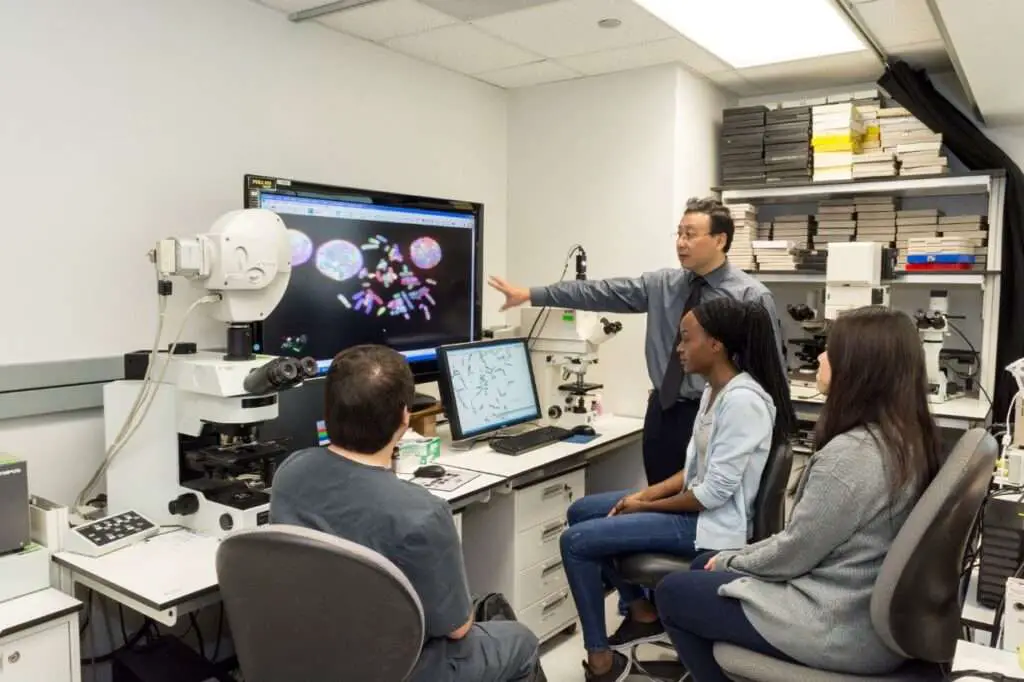
Also Read – Medical Laboratory Technician Job Description
Salary
The Salary of a Clinical Cytogeneticist varies, depending on the location and level of experience. The greater the experience, the higher the salary. Additionally, the location of the position can impact the salary, as higher salaries are often associated with a higher cost of living.
Cytogenetic technologists work in laboratories to analyze chromosomes in patient samples. They perform complex tests and work closely with physicians to diagnose genetic disorders. Cytogenetic technologists may earn between $55,000 and $70,000 per year. They may also need to earn accreditation through the National Accrediting Agency for Clinical Laboratory Sciences or become certified by the American Society of Clinical Pathologists.
Cytogeneticists often use laboratory technologies, such as microscopy and photography, to analyze data. They also need a thorough knowledge of genetics and molecular biology. Cytogeneticists also contribute to pathology research and the development of new treatments. Their knowledge of the scientific method is important to their work.
Salaries for Clinical Cytogeneticist scientists are competitive, but there are significant differences. The median salary for a cytogeneticist is $60,520, with the highest paid earning up to $84,300 per year. As such, salaries may vary based on experience and location.
The average salary for a Clinical Cytogeneticist in Nigeria varies widely depending on the experience level. Those with less than two years of experience can expect to earn a salary of 3,514,400 NGN, while those with five to ten years of experience can expect to earn up to $6,228,100 NGN.
Also Read – Pharmaceuticals and Biotechnology Job Description
Useful Links:-
Dubai Job Vacancies, Engineering Job Vacancies in Dubai, Top Dubai Jobs, Multiple Dubai Job Vacancies, Dubai Jobs, Jobs in Dubai, Dubai Job vacancies, Dubai Vacancies, Abu Dhabi Job Vacancies, Engineering Job Vacancies in Abu Dhabi, Top Abu Dhabi Jobs, Multiple Abu Dhabi Job Vacancies, Abu Dhabi Jobs, Jobs in Abu Dhabi, Abu Dhabi Job vacancies, UAE Vacancies, UAE Job Vacancies, Engineering Job Vacancies in UAE, Top UAE Jobs, Multiple UAE Job Vacancies, UAE Jobs, Jobs in UAE, UAE Job vacancies, UAE Vacancies
Click Here to find the latest Job Vacancies

